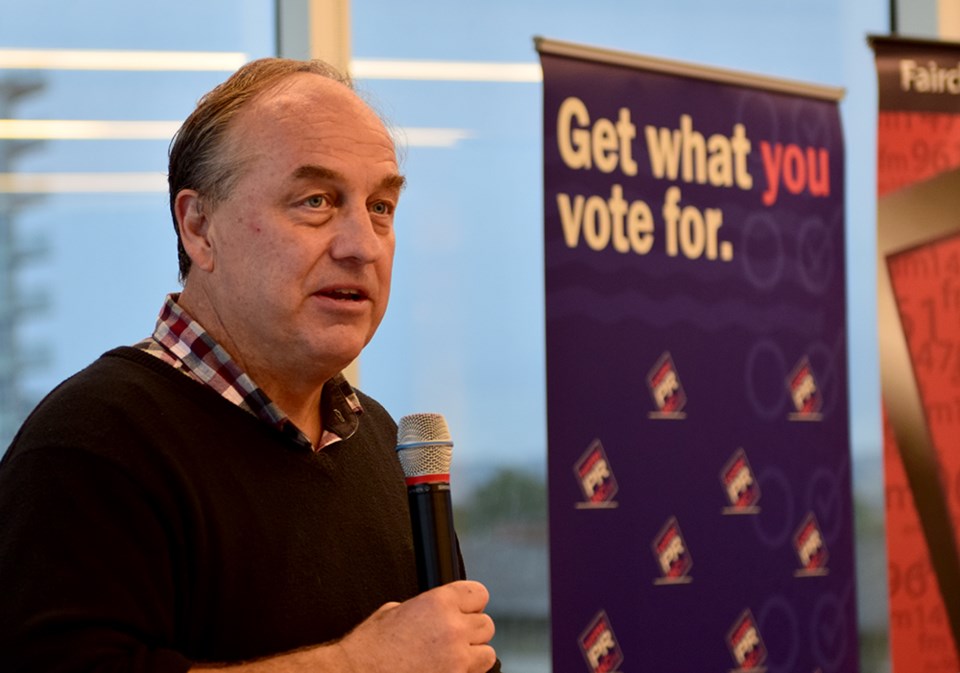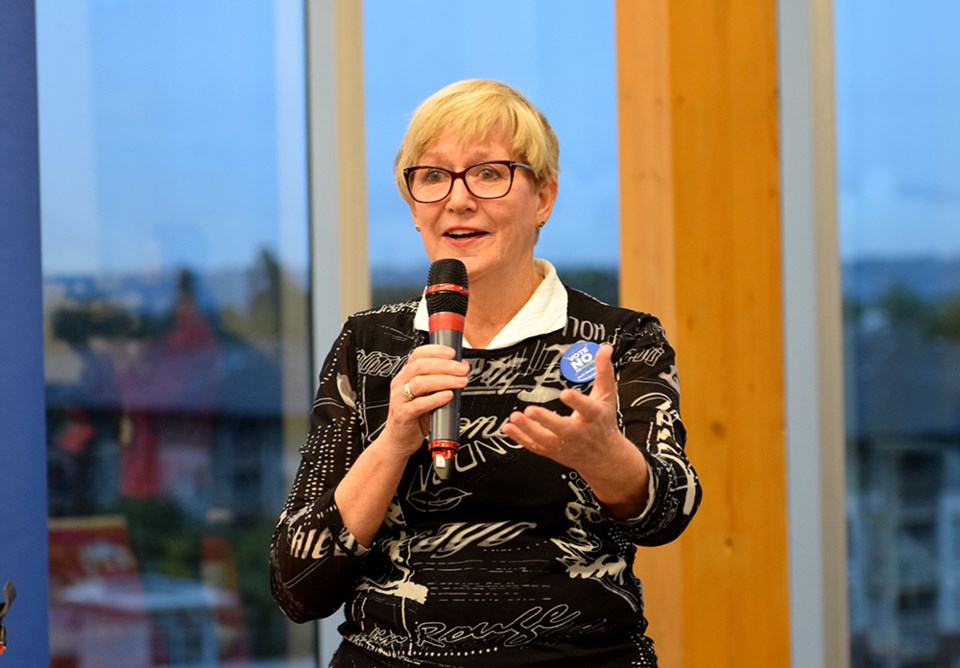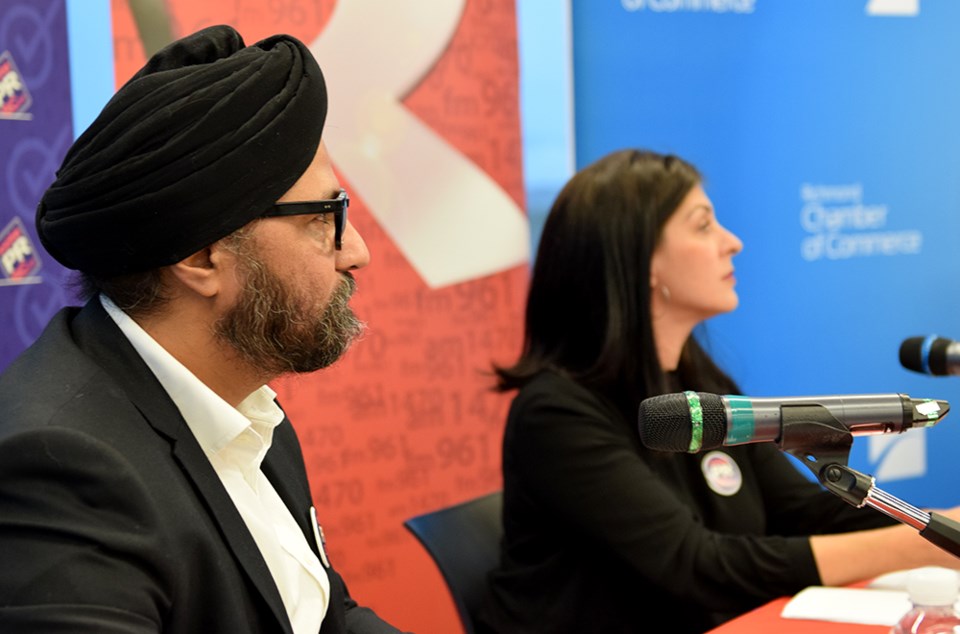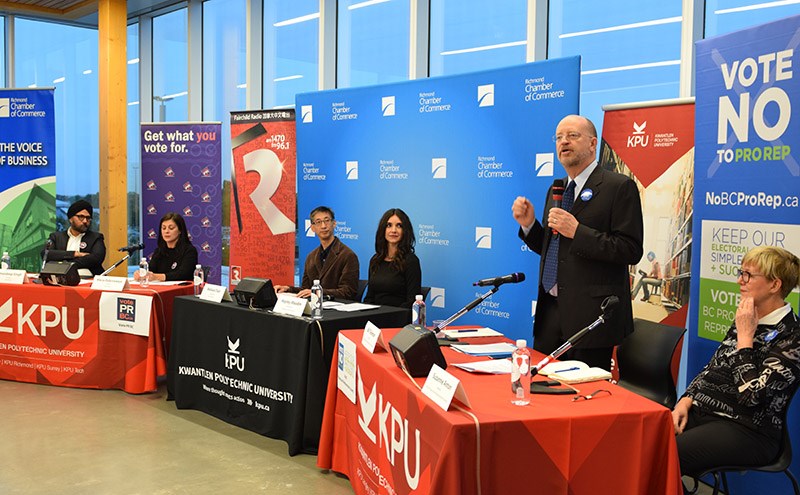Supporters and critics of proportional representation met in Richmond Thursday evening for a debate ahead of a provincial referendum on whether B.C. should change its electoral system.
British Columbians can submit their votes via mail starting Oct. 22 on whether to keep the current first-past-the-post system or move to one of three proposed alternatives.
Panelists for each side took their seats in front of an audience of about 60 people on the top floor of Kwantlen Polytechnique University’s new Wilson School of Design.

BC Green Party leader Andrew Weaver opened the evening by calling for a change to proportional representation. His party consistently sees a far larger share of the popular vote compared to how many seats it wins in the legislature.
He criticized the current lack of geographic party representation, pointing to Richmond’s four Liberal MLAs, and asked where a Green or NDP supporter could go for an advocate to bring an issue up in the legislature. He also criticized Premier John Horgan’s attempt to “buy votes” in strategic ridings by removing bridge tolls and offering a renter’s rebate.
Jas Johal, MLA for Richmond-Queensborough, took the podium next to argue for sticking with the current system. All four of Richmond’s provincial ridings went to BC Liberal MLAs in May 2017, and all four of them oppose a shift to proportional representation.
Johal said proportional representation makes the ballot more complicated and makes it easier for extremists and dictators to come into power.
Bill Tieleman, a panelist against proportional representation, pointed to several European democracies using the system that have seen a rise in far-right extremist parties.
“I’m very concerned because we have a lot of different immigrant communities,” he said. “And if there’s a hard right extremist party the positions they’re going to take could be very problematic for Richmond.”

Amandeep Singh, a panelist supporting proportional representation, argued one of the current system’s flaws is that a party that wins a minority of support can hold all the power.

“More than 50 per cent of the vote went to everybody else [Greens and NDP during the last provincial election], yet out of four MLAs you have none,” he said. “The entrenched powers have an interest in keeping that [system].”
But Tieleman argued it goes too far in the other direction, leading to “perpetual minority governments.”
“That creates economic and societal instability,” he said.
Johal cautioned that paralysis from a government that couldn’t get parties to agree during a destructive wildfire season could be catastrophic.
But Maria Dobrinskaya, the other pro-proportional representation panelist, argued that more minority governments could actually foster co-operation between politicians.
“It’s not about one party or another but about what do voters want,” she said.
She also criticized first-past-the-post for because it gives citizens who live in safe ridings the impression that their vote doesn’t matter.
“Whether or not I show up to vote, the outcome is pretty much determined,” she said. “The MLAs in those seats are very hard to remove. The accountability is not there.”



